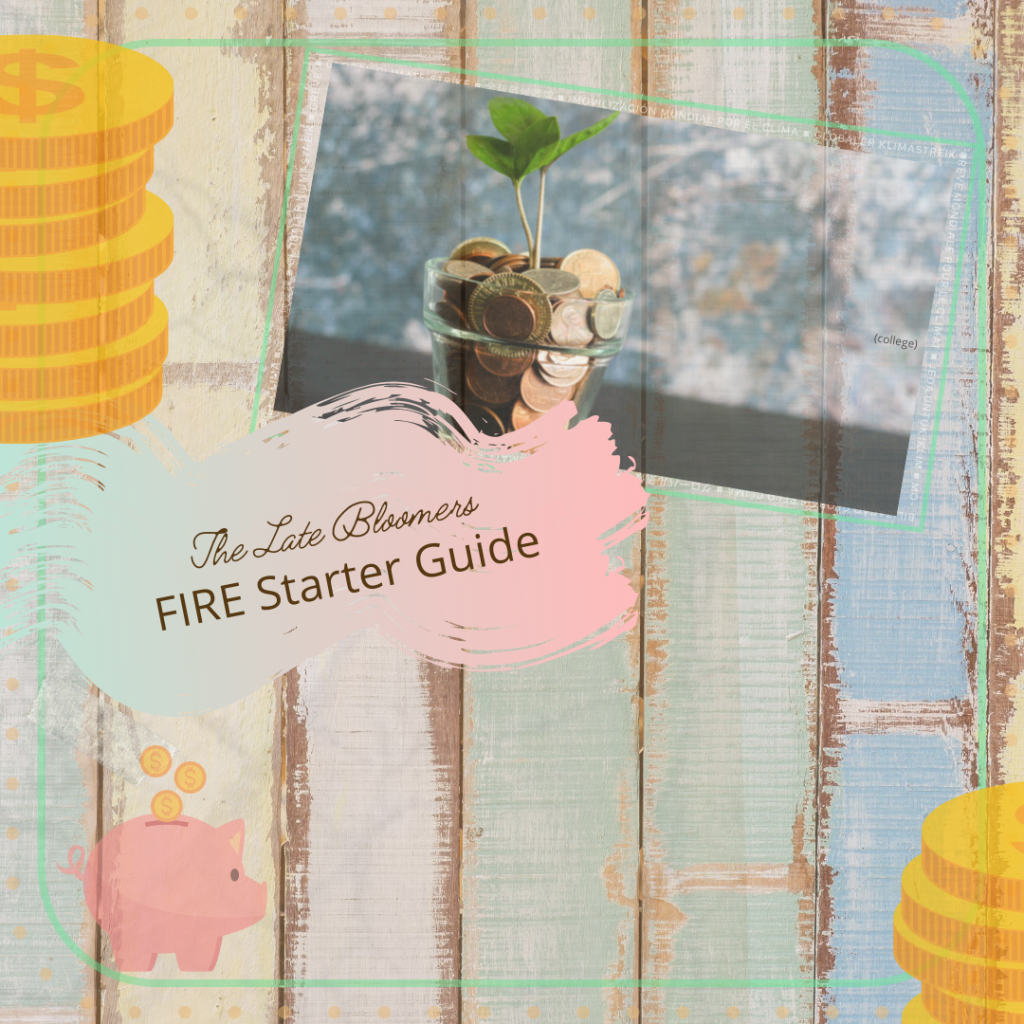
I was a late starter and have made a complete 180 in the past few years after I had an aha moment. I was struggling and feeling my age and health issues creeping in and started to not be able to keep up.
First I read Rich Dad Poor Dad to get some financial IQ and found it fascinating because while I expected a boring finance 101, it is more a narrative about money mindset and what we initially learn and build our actions around depending on the wealth we are or are not born into.
Richest Man In Babylon is another good read and also available as audiobook, free on YouTube.
Soon after I read these I discovered the FIRE Movement which largely focuses on Index funds and/or real estate, typically. Vanguard is actually member owned so their rates are lowest, and Jack Bogle (vanguard founder and philanthropist) was the one to create the Index fund solution, which holds a broad range of companies. This is best optimized through IRA, 401K, and HSA since they are tax advantaged accounts and lower your tax burden. The trick is to optimize the accounts through indexing after the money is initially added to them. I learned late that if you work for yourself you can contribute to 401K as both the employee and the company owner. When I was freelancing I always thought you needed a jobby-job for 401K, but nope.
Using mint.com to get real with my spending and expenses was unexpectedly eye opening. I thought I was frugal but I found lots of holes in my spending, so I developed a budget which in itself was liberating, and allowed me to increase my savings rate, even when I thought I had no room to budge. Next I started using Acorns to round up my pennies every time I swiped for purchases. This was extremely helpful when I didn’t have anything to spare for savings. Seeing this account grow was really motivating and eventually I was able to increase it to save $20 / month then $100 etc. Combining this with checking my mint account to keep an eye on mindless spending (even if it was cheap stuff) really helped me re-prioritize.
What I like about the FIRE movement is you don’t have to pay an advisor who typically skims the top and takes so much more than you realize, all for something you can do yourself with some self directed edu. Once you learn the basics it’s not as daunting as it seems and it’s pretty straight forward. If I can learn it, anyone can, as cliche as that phrase is, it’s genuinely valid. I had no clue, came from extreme poverty and was placed in the system at a young age. This journey has been very enlightening. It’s surprisingly accessible to all walks of life, but it is definitely not mainstream knowledge.
Some really helpful podcasts, websites, and IG accounts that have helped me immensely are below. All are BIPOC and/or Women Owned.
Afford Anything
HerFirst100K + Financial Feminist
Millennial Revolution (insightful at any age)
A Purple Life
Our Rich Journey
Rich + Regular
The next step in my personal journey is to learn more about sustainable investing. Ellevest is created by women for women and has tons of free resources on their IG FEED, and the ETF “VOTE” is supposedly driving activism through their investment platform.
Even before getting into investments, HYSA, High Yield Savings Account – is a better way to save. Building a 3-6 month emergency fund is an important step to protect your future and keeping it in HYSA will grow your stash. Rates were much higher pre-pandemic and are taking their sweet time getting back up to those rates. but currently CIT, Amplify, and Chime are doing well. You can get an HYSA at many credit unions as well. Here’s Nerdwallet’s Report for 2021 HYSA.
Nerdwallet is a good way to stay informed, and Investopedia is a great learning tool as well.
A few notable Nerdwallet articles:
Learn how to invest in Black-owned businesses and green companies.
LGBTQ Financial Planning Guide.
I know this is a lot of info for a primer but it’s worth the rabbit hole to be able to course correct and give yourself a real safety net. I hated money my whole life until my body started to break down. At the end of the day I have come to believe that money is a tool, or an energy. It isn’t inherently evil or inherently good. I got tired of not having enough to share and felt like I was only hurting myself in the end.
While the system is undoubtedly fckd, there are strategies that allow people to ethically help themselves and help each other. I try to focus on using monetary energy for good, growth, charity, and community.
Everyone deserves prosperity.
